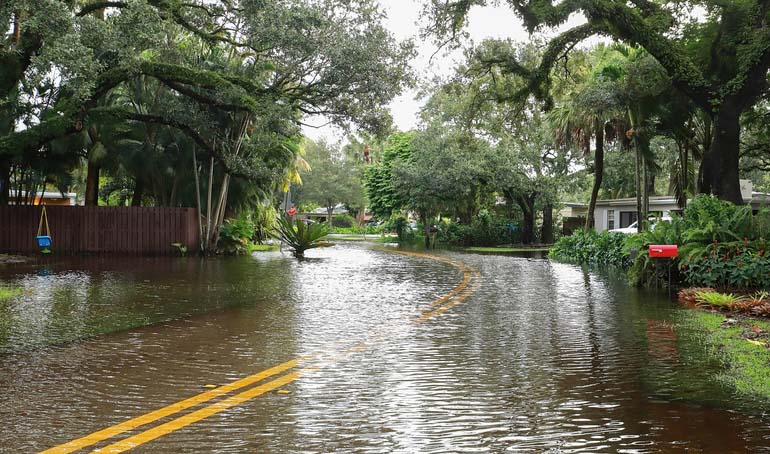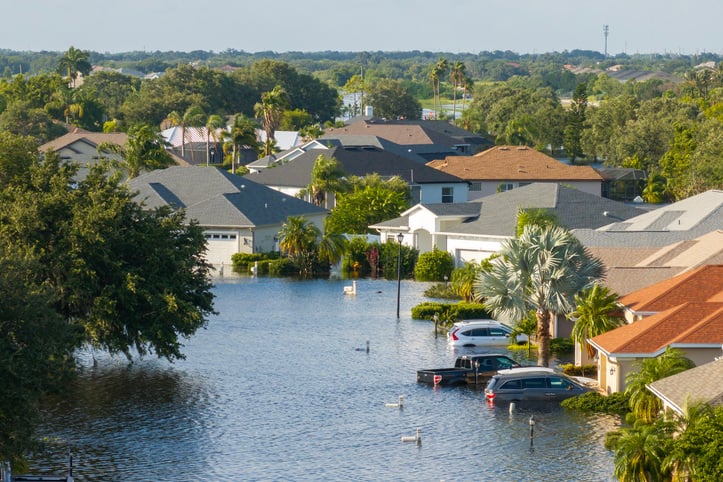4 Reasons to Become a FEMA Disaster Assessor/Inspector with MCS Government Services

Disaster assessors, often referred to as inspectors, play a critical role after hurricanes, earthquakes, large fires and other natural disasters. Their role is an integral part of the Federal Emergency Management Agency’s (FEMA) Individual and Households Program (IHP) Field Services Contract that provides emergency grants for property owners impacted by natural disasters. Between 2018 and 2021, the federal agency authorized home inspections for 1.4 million applicants.
As an inspections leader, MCS Government Services maintains a large national network of on-call FEMA disaster assessors/inspectors. Have you considered becoming a FEMA disaster assessor/inspector? Here’s a brief look at what disaster assessors/inspectors do and four reasons why you should join MCS’s network.
What does a FEMA disaster assessor/inspector do?
As a FEMA disaster assessor/inspector with MCS, you may be deployed at a moment’s notice to conduct assessments and inspections within 24 hours of a natural disaster.
As FEMA’s assessment program evolves, the agency is seeking partners who can provide more than a damage assessment of a home. The agency is prioritizing the survivor experience and looks to assessors/inspectors as “recovery partners” who can offer well-rounded assistance to impacted individuals.
MCS Government Services assessors/inspectors conduct surveys and questionnaires developed by the agency and provide support and resources to homeowners who have suffered damage to their home and property.
When meeting with victims of a disaster, assessors/inspectors must demonstrate compassion and professionalism as they offer guidance and support. In addition to simply documenting and assessing the level of damage that will help disaster victims rebuild their homes, assessors/inspectors are also responsible for connecting impacted individuals with additional resources, such as temporary housing assistance, filing for unemployment benefits and access to behavioral health specialists trained in trauma-informed care that can accelerate their road to recovery.
RELATED ARTICLE: 2024 Atlantic Hurricane Season Outlook: What To Expect
Four reasons to become a FEMA disaster assessor/inspector
1. You can make a difference as a disaster assessor/inspector
Being able to help a homeowner in need recover from a disaster can be incredibly gratifying, and FEMA assessors get to experience this on the front lines. The agency has recently taken a more holistic approach to its disaster recovery processes. Disaster inspectors are now referred to as assessors. And the assessors/inspectors we work with rank the ability to help others and truly make a difference as one of the most important aspects of their work.
2. Being a FEMA assessor/inspector can be exciting
Many disaster inspectors enjoy the freedom and excitement that can come with working in disaster recovery. As a disaster assessor, you might be deployed for a couple of weeks or even a month at a time in the aftermath of disasters like fires, floods, tornadoes, hurricanes or earthquakes.
While this kind of commitment may not be a fit for everyone, it can be ideal for some, including young people looking for rewarding adventures in their work life or retirees with the flexibility to deploy on a moment's notice. While your schedule does need to be flexible enough to be able to quickly deploy in the event of a disaster, as a FEMA assessor with MCS, you aren’t required to accept an assignment. During monthly check-ins, you can advise on your availability for a deployment if and when the need arises.
3. You can supplement your other inspections work
Becoming a disaster assessor can help you round out your schedule and boost your paycheck. Whether you’re looking to supplement your other inspections work or you work in a trade like electrical, plumbing or HVAC, becoming an assessor can help you fill your schedule between jobs or during a slow season.
4. You can be a W2 employee with a flexible schedule with MCS
Working for MCS Government Services as a disaster assessor/inspector can offer the best of both worlds: the flexibility to make your own schedule and still enjoy the benefits of being a W2 employee with MCS.
You’ll benefit from being part of a supportive team while earning a minimum per-hour amount as well as incentive pay. And if you decide you’d like even more work as an inspector, that’s possible with MCS. Because we conduct a high volume of inspections year-round for our other customers, you could be part of the FEMA team and potentially work with other MCS customers too—allowing you to maintain a more consistent workload throughout the year.
Join MCS Government Services Today
MCS’s network of disaster assessors/inspectors has completed more than 710,000 disaster inspections and counting since 2017. Whether you’re an industry veteran or seeking a new opportunity, we’re always looking for compassionate, motivated and diligent individuals to join us. Apply today to join our team.


